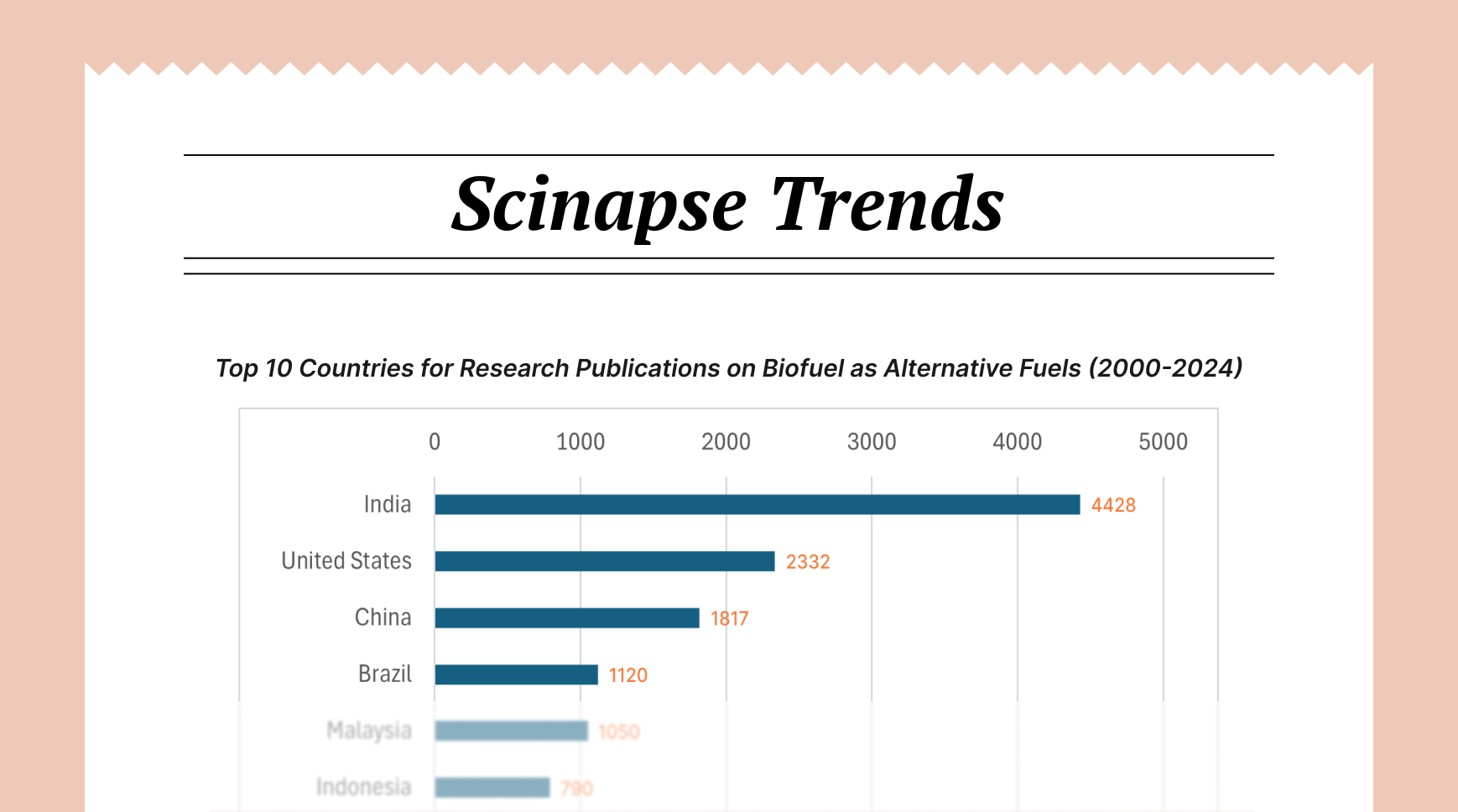Staying Ahead of the Curve: Top 3 Effective Strategies to Master Research Trends in 2024

Have you ever wondered how the true innovators of academia and professional research manage to stay one step ahead? What distinguishes those who lead their fields from those who do not? The answer lies in a seemingly simple yet crucial skill: the ability to stay current with research trends. But what exactly does this entail, and why is it so vital?

Let’s explore the critical importance of remaining up-to-date in one's field and offering practical approaches to mastering this essential skill in the rapidly evolving research landscape.
Importance of Staying Up-To-Date with Research Trends
As the deluge of knowledge is constantly shifting, staying up-to-date with research trends is a necessity. Here are 6 reasons explaining the importance of keeping current with research trends:
- Competitive Edge: Allows researchers and professionals to stay ahead of their peers, potentially leading to career advancements and funding opportunities.
- Boosts Innovation: Knowledge of recent developments can ignite new ideas and approaches, fostering innovation and breakthrough discoveries.
- Research Quality: Ensures that one's work builds upon the latest findings, improving the overall quality and relevance of research outputs.
- Collaboration Opportunities: Helps identify potential collaborators working on similar or complementary topics, and provides insight into global research efforts and priorities in one's field. Additionally, can reveal connections between different fields, potentially leading to novel interdisciplinary approaches.
- Informed Decision-Making: Aids in making better-informed decisions in research direction, methodology selection, and resource allocation. Furthermore, it helps avoid duplicating efforts already undertaken by others in the field, and allows researchers to anticipate and prepare for future directions in their field.
- Funding Success: Funders are increasingly looking for projects that address cutting-edge issues and demonstrate potential for significant impact. Thus, grant proposals that demonstrate awareness of current trends are often more competitive.
However, this task is not without its challenges. Information overload, the rapid pace of scientific advancement, the increasingly interdisciplinary nature of modern research, access barriers to publications, and time constraints all contribute to the difficulty of staying current.

3 Effective Strategies to Stay Up-To-Date With Research Trends
Despite these challenges, there are 3 most effective strategies that can help you steer the ever-changing research landscape.
- Leverage Advanced Research Tools and Platforms
The digital age with several AI tools can streamline the process of staying current. While the traditional academic search engines like Google Scholar and Semantic Scholar can help you find relevant publications quickly, they may not always be relevant to your research. It is imperative to use an AI tool for research trends that offers a targeted approach specific to your research field—Scinapse. Its trend analysis feature that allows filtering based on research field, followed by year, country, affiliation, and SCIE indexation helps provide valuable insights into emerging research directions and trending topics in your field. Ready to discover the latest trends in your research area? Try Scinapse now and see what's trending in your field!
- Implement Systematic Literature Review Practices
Developing a structured approach to literature reviews can help you efficiently process large volumes of information. Utilize systematic review methodologies to ensure comprehensive coverage of your field. Implement regular review schedules—perhaps dedicating a few hours each week to catching up on the latest publications.
Critical appraisal techniques can help you quickly assess the quality and relevance of new research. By synthesizing findings from multiple sources, you can identify emerging trends and potential gaps in current knowledge.
- Engage in Active Research Dissemination and Feedback
Staying current isn't just about consuming information—it's also about contributing to the ongoing dialogue in your research field. Publish your research findings regularly and present at conferences and seminars. These activities not only share your work with others but also expose you to feedback and new ideas.
Seek mentorship from experts in your field, and as you progress, provide mentoring to others. This two-way exchange of knowledge can help you stay connected to both established wisdom and fresh perspectives.
Implementing these strategies requires a holistic approach. No single method will be sufficient on its own; instead, aim to integrate multiple strategies in a way that suits your individual needs and the specific requirements of your research field. Regularly evaluate and adjust your approach to ensure it remains effective as your career evolves and your field advances.
Key Takeaway!
Staying current with research trends is an ongoing journey that requires adaptability and persistence. It's not always easy, but the benefits—to your work, your field, and potentially to society at large—make it a worthwhile endeavor. By taking a proactive approach to research trend awareness, you position yourself at the forefront of your field, ready to contribute to and shape the next wave of discoveries and innovations.
Don't miss out on the cutting-edge developments in your field. Visit Scinapse today and explore the trending topics that could shape your next breakthrough!
written by Uttkarsha B
Never re-search again.
Scinapse is made by researchers for researchers.
Join the next generation of research at ⏯️ https://scinapse.io/
Pluto Labs
Pluto Labs helps researchers focus on their research by improving several inefficiencies in the academic research process. We offer data-driven insights from academic papers, allowing users to easily obtain review-level results for their desired range of papers.
https://pluto.im/





Comments ()